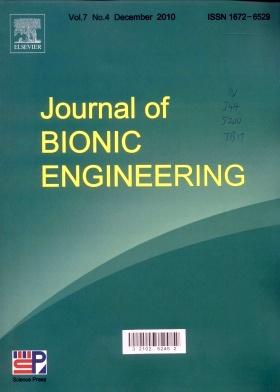Musculoskeletal Symptoms (MSS) often arise from prolonged maintenance of bent postures in the neck and trunk during surgical procedures. To prevent MSS, a passive exoskeleton utilizing carbon fiber beams to offer support to the neck and trunk was proposed. The application of support force is intended to reduce muscle forces and joint compression forces. A nonlinear mathematical model for the neck and trunk support beam is presented to estimate the support force. A validation test is subsequently conducted to assess the accuracy of the mathematical model. Finally, a preliminary functional evaluation test is performed to evaluate movement capabilities and support provided by the exoskeleton. The mathematical model demonstrates an accuracy for beam support force within a range of 0.8–1.2 N Root Mean Square Error (RMSE). The exoskeleton was shown to allow sufficient Range of Motion (ROM) for neck and trunk during open surgery training. While the exoskeleton showed potential in reducing musculoskeletal load and task difficulty during simulated surgery tasks, the observed reduction in perceived task difficulty was deemed non-significant. This prompts the recommendation for further optimization in personalized adjustments of beams to facilitate improvements in task difficulty and enhance comfort.



